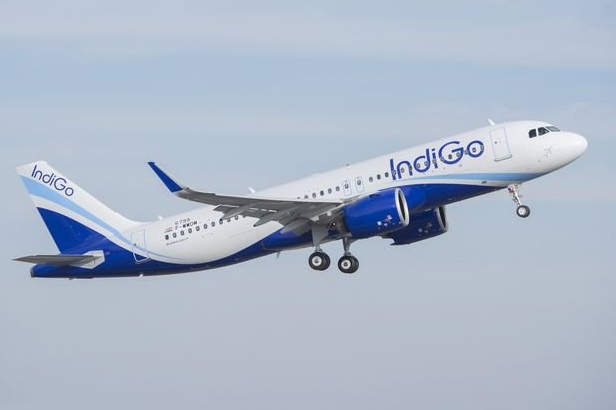(Le Bourget) The European aircraft manufacturer Airbus won the largest order ever in civil aviation on Monday, with 500 A320neo family planes for the Indian company IndiGo, on the first day of the Le Bourget air show, the first organized since 2019.
According to the last known price, this transaction could reach 55 billion dollars. The order is for aircraft to be delivered between 2030 and 2035, both A320neo and A321neo, with larger seat capacity, as India anticipates an explosion in air travel in the country.
French President Emmanuel Macron spent much of the day there, after arriving aboard an H160, the latest in the Airbus Helicopters lineup.
A nod from the Élysée to the necessary decarbonization of the aviation sector in the face of climate change, this aircraft was fueled with 30% sustainable aviation fuel (SAF by its acronym in English), of non-fossil origin.
Mr. Macron then attended the first aerial demonstrations. Helicopters, Rafale combat aircraft or even Airbus A321 XLR, long-range version of the star European single-aisle, chained the arabesques under a cloudy sky.
Then, questioned about the calls to reduce the place of the plane for ecological reasons, the head of state defended a “reasonable” and “non-punitive” ecological “sobriety”, and considered that it was ” unreasonable” to “give up growth”.
From dawn, visitors converged on this event bringing together 2,500 exhibitors, organized until Sunday. All while trying to overcome monster traffic jams around the historic Le Bourget airport, located near Paris.
Largest in the world in terms of number of visitors – 320,000 people expected, the general public having access from Friday – this show is traditionally marked by mega-orders of aircraft, flight demonstrations and technological presentations.
But beyond that, this 54th edition is placed under the sign of the climate crisis and the societal pressures exerted on a sector contributing to nearly 3% of global CO2 emissions.
The gathering is being billed as “the trade show for recovery” after the pandemic has dried up airline finances and permanently disrupted manufacturers’ supply chains.
It’s “the return of the good old days of the excitement of the show”, enthused Guillaume Faury, boss of Airbus and of the Groupement des industries françaises aeronautiques et spatial (Gifas), the organizer of the event.
The crowd shows that “the passion for air has not disappeared, it’s still good news”, explains to AFP the general manager of Easyjet for France and Benelux, Bertrand Godinot.
But for 14 environmental NGOs, the Paris Air Show illustrates on the contrary “climate denial”. “Without limiting air traffic, we will not be able to sufficiently reduce emissions, noise or pollution from the sector in the time available,” said the organizations united under the “Stay Grounded” banner. but also “be realistic”).
As global air traffic is set to return to pre-COVID-19 levels, airlines are looking to renew their fleets with more cost-effective aircraft that consume less fuel and therefore emit less CO2.
And faced with aircraft manufacturers whose delivery slots are almost full until 2029, the companies are anticipating their growth, while global air traffic should double within 25 years.
How many Airbuses, Boeings? “Everyone is going to look at the big orders,” Faury said before the show and the announcement of the IndiGo order.
Orders there will be, assured his side Stan Deal, boss of the commercial aircraft branch of Boeing. “But our primary focus remains to continue working with the industry to recover from COVID-19. »
The stakes are high for the two aircraft manufacturers, faced with the difficulties of their supplier chains to follow the ramps up to deliver the aircraft.















